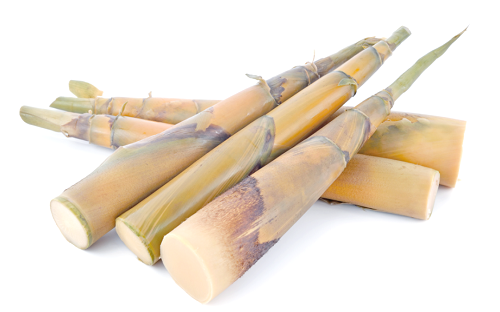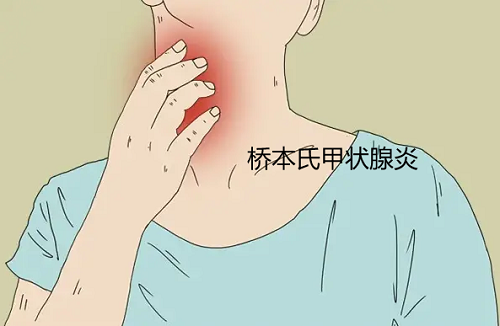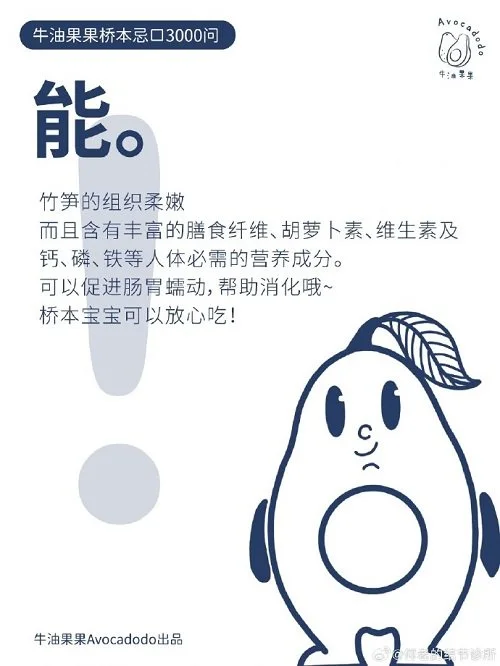Healthy Eating Methods of Bamboo Shoots and Their Potential Impact and Mechanisms on Hashimoto's Thyroiditis (Hashimoto's Disease)
I. Healthy Eating Methods of Bamboo Shoots
Bamboo shoots are a low-calorie, high-fiber natural ingredient rich in various nutrients, but they should be consumed properly to avoid negative effects on thyroid function.
1. Nutritional Value
Dietary Fiber: Promotes gut health and alleviates constipation, a common issue for Hashimoto's patients.
Minerals: Contains potassium, magnesium, and selenium (in some varieties), which help regulate immune and metabolic functions.
Antioxidants: Polyphenols and other compounds may reduce chronic inflammation (Hashimoto's is associated with autoimmune inflammation).
Low Glycemic Index (GI): Suitable for Hashimoto's patients to maintain stable blood sugar levels.
2. Recommended Consumption Methods
Thorough Blanching: Fresh bamboo shoots contain small amounts of goitrogens and oxalic acid. Boiling for 5–10 minutes significantly reduces these compounds.
Pair with High-Iodine or High-Selenium Foods: Such as seaweed (for iodine) or Brazil nuts (for selenium) to balance thyroid function.
Avoid Pickled or High-Salt Processing: Hashimoto's patients should reduce sodium intake to lower autoimmune reactions.
3. Suitable Groups
General healthy individuals, those needing weight control, or improved digestion.
Hashimoto's patients can consume in moderation, but adjustments should be made based on individual thyroid function.
II. The Relationship Between Bamboo Shoots and Hashimoto's Thyroiditis & Potential Mechanisms
Hashimoto's is an autoimmune thyroiditis characterized by the immune system mistakenly attacking thyroid tissue, leading to hypothyroidism. The impact of bamboo shoots should be analyzed from two perspectives: immune regulation and thyroid hormone synthesis.
1. Potential Benefits
Anti-Inflammatory Effects:
Antioxidants (e.g., flavonoids) in bamboo shoots may mildly suppress chronic inflammation, though evidence is limited.Dietary Fiber Modulates Gut Microbiota:
Hashimoto's is linked to gut dysbiosis, and the prebiotic effect of bamboo shoots may indirectly support immune balance.
2. Potential Risks
Goitrogenic Compounds:
Bamboo shoots contain thioglycosides (similar to cruciferous vegetables), which may convert into thiocyanates in the body, competitively inhibiting iodine uptake by the thyroid and interfering with thyroid hormone (T3/T4) synthesis.Impact on Hashimoto's Patients:
If combined with iodine deficiency, it may worsen hypothyroidism.
If iodine intake is sufficient (e.g., iodized salt), the effect is minimal.
3. Scientific Recommendations
Hashimoto's Patients in Stable Phase (normal thyroid function):
Can consume moderately (2–3 times per week), cooked after blanching.
Avoid combining with other goitrogenic foods like soy or broccoli in the same meal.
Hashimoto's Patients in Hypothyroid Phase:
Exercise caution; prioritize iodine and selenium intake, reducing bamboo shoot consumption (≤1 time per week).
Key Nutrient Pairings:
Selenium (Brazil nuts, fish) helps break down thiocyanates and protects the thyroid.
Vitamin C (e.g., lemon juice) may reduce oxidative stress.
III. Precautions
Individual Variability: Some Hashimoto's patients are sensitive to goitrogens—self-monitoring is advised.
Not a Substitute for Treatment: Bamboo shoots have limited regulatory effects; medical treatment (e.g., levothyroxine) and doctor’s guidance are essential.
Comprehensive Management: Hashimoto’s requires a holistic approach, including a gluten-free diet, stress reduction, and regular sleep.
Summary
Bamboo shoots are a "double-edged sword" for Hashimoto’s patients:
Benefits: Provide fiber, antioxidants, and may indirectly support gut and immune health.
Risks: Goitrogens may interfere with hormone synthesis, but blanching and balanced diets can mitigate this.
Recommendations:Consume in small amounts, thoroughly cooked, and avoid raw or excessive intake.
Monitor thyroid function markers (TSH, T3/T4) and adjust diet accordingly.
For further questions, consult an integrative nutritionist for a personalized plan.



